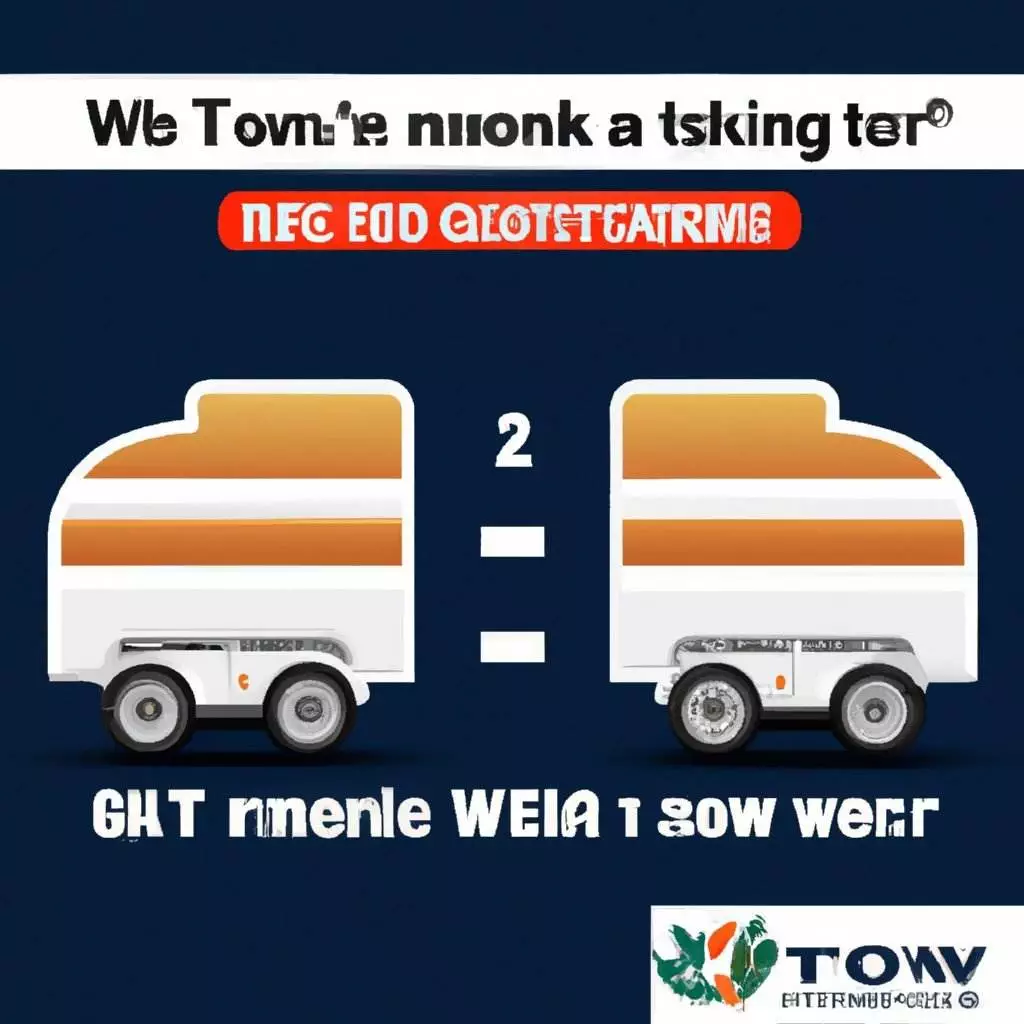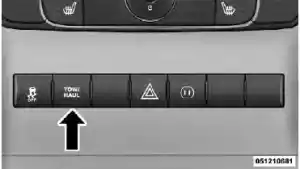In the world of towing, one question that often arises is whether it’s permissible to tow a trailer with a higher Gross Vehicle Weight Rating (GVWR) than your truck. This article aims to shed light on this topic and provide a clear understanding of the factors involved. We’ll explore the importance of matching a trailer’s GVWR to your truck’s towing capacity, examine the potential risks and implications of exceeding these limits, and offer guidelines to help make informed decisions when it comes to towing with a higher GVWR.

Understanding GVWR
Definition of GVWR
GVWR stands for Gross Vehicle Weight Rating, which is the maximum weight a vehicle is designed to safely carry, including its own weight and the weight of its passengers, cargo, and accessories. It is determined by the manufacturer of the vehicle and is usually displayed on a label inside the driver’s side door jamb or in the vehicle’s owner’s manual. This weight rating is essential for ensuring the vehicle’s safety and performance while carrying or towing loads.
Importance of GVWR
Understanding and adhering to the GVWR of your vehicle is crucial for several reasons. Firstly, exceeding the GVWR can put excessive strain on your vehicle’s suspension, braking system, and other critical components, which can lead to increased wear and tear and potential breakdowns. Secondly, surpassing the GVWR compromises the vehicle’s stability and handling, making it more difficult to control on the road. Lastly, exceeding the GVWR can have legal implications, as it may violate vehicle safety regulations and result in fines or penalties.
Towing Capacity and Limitations
Determining your truck’s towing capacity
When it comes to towing a trailer, it is equally important to understand your truck’s towing capacity. This capacity is the maximum weight your vehicle can safely tow, including the weight of the trailer itself, the payload, and any passengers or cargo inside the truck. To determine your truck’s towing capacity, consult your vehicle’s owner’s manual or contact the manufacturer. It is essential to note that exceeding the towing capacity can have severe consequences, compromising safety and causing damage to your vehicle.
Factors that affect towing capacity
Several factors can influence your truck’s towing capacity. These factors include engine power, transmission type, axle ratio, suspension, and cooling system. Trucks with larger engines and heavy-duty components typically have higher towing capacities. Upgrades such as tow packages, auxiliary transmission coolers, and reinforced suspension systems can also enhance towing capabilities. It is crucial to consider these factors when assessing your vehicle’s ability to tow a trailer.
Determining the trailer’s GVWR
Before towing a trailer, it is vital to determine its Gross Vehicle Weight Rating (GVWR). This rating indicates the maximum weight the trailer can safely carry, including its own weight, cargo, and passengers. The trailer’s GVWR should not exceed your vehicle’s towing capacity, as doing so can pose significant safety risks. The trailer’s GVWR is typically displayed on a label attached to the trailer itself or in the owner’s manual. Always check this rating and ensure it falls within your vehicle’s towing capacity.
Considerations for Towing a Trailer with Higher GVWR
Safety concerns
Towing a trailer with a higher GVWR than your vehicle is capable of can significantly compromise safety on the road. The increased weight can strain your vehicle’s suspension and braking system, reducing control and increasing stopping distances. It can also lead to overheating of the transmission and engine, causing potential damage. Additionally, the added weight may impact the vehicle’s stability, making it more susceptible to sway or jackknife. Overall, towing a trailer with a higher GVWR than recommended by your vehicle’s manufacturer is a safety hazard that should be avoided.
Legal requirements
In addition to safety concerns, towing a trailer with a higher GVWR than your vehicle’s capacity may violate legal requirements. Many jurisdictions have specific regulations regarding towing capacities and weight limits, and exceeding these limits can result in fines, penalties, or even impoundment of your vehicle and trailer. It is essential to familiarize yourself with the towing regulations in your area and ensure compliance to avoid legal consequences.
Vehicle modifications and upgrades
If you find yourself needing to tow a trailer with a higher GVWR than your vehicle’s capacity, it may be tempting to consider modifications or upgrades to enhance towing capabilities. However, it is crucial to consult with a professional mechanic or the vehicle manufacturer before making any modifications. They can evaluate the feasibility and safety of such modifications and ensure they comply with the vehicle’s specifications. Modifying your vehicle without proper guidance can lead to unexpected mechanical issues and compromise road safety.
Assessing the Compatibility
Determining the difference in weight
When considering towing a trailer with a higher GVWR, it is essential to determine the difference in weight between the trailer and your vehicle’s towing capacity. This difference can give you an idea of how much strain the trailer will put on your vehicle and whether it is within a safe range. It is important to calculate the weight of the trailer, including its cargo, passengers, and any additional accessories, and compare it to your vehicle’s towing capacity to assess compatibility.
Understanding weight distribution
Apart from the difference in weight, understanding weight distribution is crucial for safe towing. Proper weight distribution ensures that the weight of the trailer and its contents are evenly distributed across the axles of both the trailer and the towing vehicle. An imbalanced weight distribution can affect stability and cause issues such as trailer sway. To achieve optimal weight distribution, consider using a weight distribution hitch, which helps evenly distribute the weight across the trailer and vehicle.
Considering the tongue weight
Tongue weight refers to the force exerted on the hitch ball by the trailer’s coupler. It is an essential aspect of safe towing as it affects the vehicle’s handling and balance. The tongue weight should typically be around 10-15% of the total trailer weight. A higher tongue weight can increase stability but may overload the rear axle of the towing vehicle. Conversely, a lower tongue weight can compromise stability but place less strain on the towing vehicle. It is essential to find the right balance of tongue weight for safe and controlled towing.

Enhancing Towing Performance
Strengthening the truck’s suspension
To enhance towing performance and accommodate a trailer with a higher GVWR, strengthening the truck’s suspension is crucial. Upgrading to heavy-duty shocks, springs, and struts can help improve stability, handling, and load-carrying capabilities. Additionally, installing airbags or helper springs can provide additional support and help level the vehicle when towing. Consulting with a professional mechanic or suspension specialist can help identify the most suitable suspension upgrades for your specific towing needs.
Upgrading the braking system
Towing a trailer with a higher GVWR increases the strain on your vehicle’s braking system. Upgrading the braking system is essential to ensure sufficient stopping power and control while towing. Consider installing heavy-duty brake pads, rotors, and calipers designed for towing applications. Additionally, ensure your vehicle’s brake fluid is regularly changed and maintained at the recommended level. Professional guidance is crucial for selecting and installing the appropriate braking system upgrades for your vehicle.
Installing a weight distribution hitch
A weight distribution hitch (WDH) is a device designed to distribute the weight of the trailer more evenly across all axles of both the trailer and the towing vehicle. It can enhance stability, control, and braking performance while towing a trailer with a higher GVWR. A WDH works by applying leverage to transfer some of the trailer’s tongue weight from the rear axle of the towing vehicle to the front axle. This helps balance the weight distribution and reduces the strain on the rear axle. Proper installation and adjustment of the WDH are essential for achieving the desired towing performance.
Consulting with Experts
Seeking advice from a professional mechanic
When dealing with towing considerations, seeking advice from a professional mechanic can provide valuable insights and guidance. A qualified mechanic can assess your vehicle’s towing capacity, make recommendations for any necessary upgrades or modifications, and ensure the vehicle is prepared for safe towing. Additionally, they can address any specific concerns or questions you may have regarding towing a trailer with a higher GVWR.
Contacting the trailer manufacturer
Contacting the trailer manufacturer is another essential step before towing a trailer with a higher GVWR. The manufacturer can provide valuable information about the trailer’s specifications, including its GVWR, recommended towing capacity, and any additional requirements or recommendations. They can also address any questions or concerns you may have regarding towing a trailer with their specific model. By contacting the trailer manufacturer, you can ensure that you have accurate and up-to-date information to make an informed towing decision.
Towing Insurance Considerations
Understanding insurance coverage
Before towing a trailer with a higher GVWR, it is important to review your insurance coverage. Standard auto insurance policies may not provide coverage for towing trailers or may have specific limitations and exclusions. Understanding your policy’s coverage for towing and trailers can help you determine if additional insurance is necessary to protect yourself, your vehicle, and the trailer while towing.
Checking the policy limitations
When reviewing your insurance policy, pay close attention to any limitations or exclusions regarding towing a trailer with a higher GVWR. Some policies may have specific towing weight limits or requirements that must be adhered to. It is important to ensure that your intended towing activities fall within the policy’s provisions to avoid any potential coverage gaps. If necessary, consider contacting your insurance provider to discuss your specific towing needs and explore available coverage options.
Researching State and Local Regulations
State-specific towing regulations
Each state has its own set of regulations regarding towing capacities, weight limits, and other requirements. It is crucial to research and familiarize yourself with the towing regulations specific to the state(s) you will be traveling in. These regulations may include maximum weight limits for trailers, speed restrictions for towing vehicles, and required safety equipment. Adhering to these regulations is not only essential for safety and legality but also helps ensure a smooth and hassle-free towing experience.
Local restrictions and requirements
In addition to state regulations, local jurisdictions may have their own restrictions and requirements for towing. Certain cities, counties, or municipalities may have weight or size restrictions for towing vehicles and trailers on specific roads, bridges, or tunnels. It is important to check with local authorities or consult local towing experts to ensure compliance with any local restrictions or requirements. Neglecting to do so may result in costly fines, delays, or even the inability to tow your trailer in certain areas.
Evaluating the Risks and Benefits
Weighing the advantages and disadvantages
Towing a trailer with a higher GVWR than your vehicle’s capacity involves both advantages and disadvantages. On one hand, it may allow you to carry more cargo or accommodate larger trailers. However, it also poses significant safety risks, potential legal consequences, and increased strain on your vehicle’s components. Carefully weighing the advantages and disadvantages can help you make an informed decision about whether or not to tow a trailer with a higher GVWR.
Considering the potential consequences
Towing a trailer with a higher GVWR than recommended can have severe consequences. These consequences include compromised safety, increased mechanical wear and tear, decreased vehicle performance, potential fines and penalties, and potential insurance coverage gaps. It is crucial to consider these potential consequences and evaluate whether the benefits outweigh the risks. Making an informed decision based on a thorough assessment of the potential consequences will help ensure safe and trouble-free towing experiences.
Conclusion
Weighing the factors before towing a trailer with higher GVWR
Before towing a trailer with a higher GVWR, it is essential to consider all the factors discussed in this article. Understanding your vehicle’s GVWR and towing capacity, evaluating safety concerns, legal requirements, and potential modifications or upgrades, assessing compatibility, researching regulations, and evaluating risks and benefits are all crucial steps in making an informed decision.
Making an informed decision
By carefully considering these factors and seeking expert advice when necessary, you can make an informed decision about towing a trailer with a higher GVWR. It is vital to prioritize safety, legality, and proper vehicle maintenance in order to have a successful and trouble-free towing experience. Remember to adhere to your vehicle’s towing capacity, follow all regulations, and regularly inspect and maintain your vehicle and trailer before embarking on any towing adventures.


